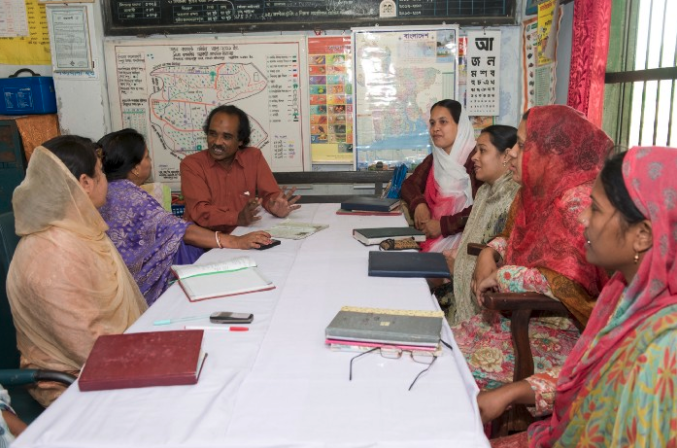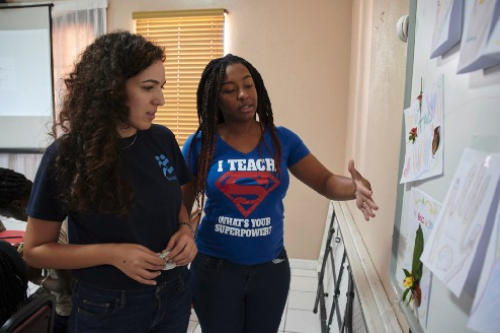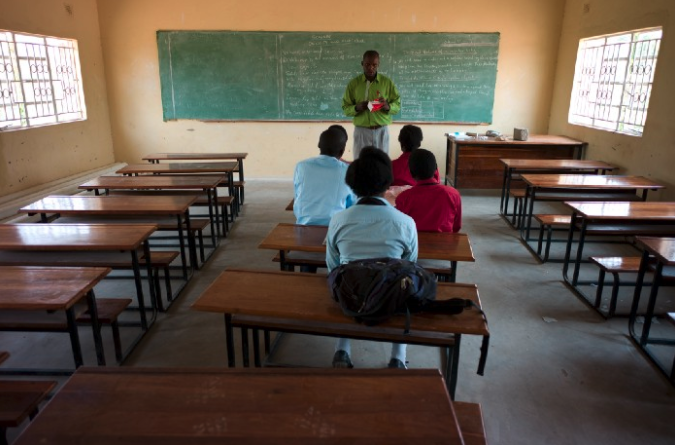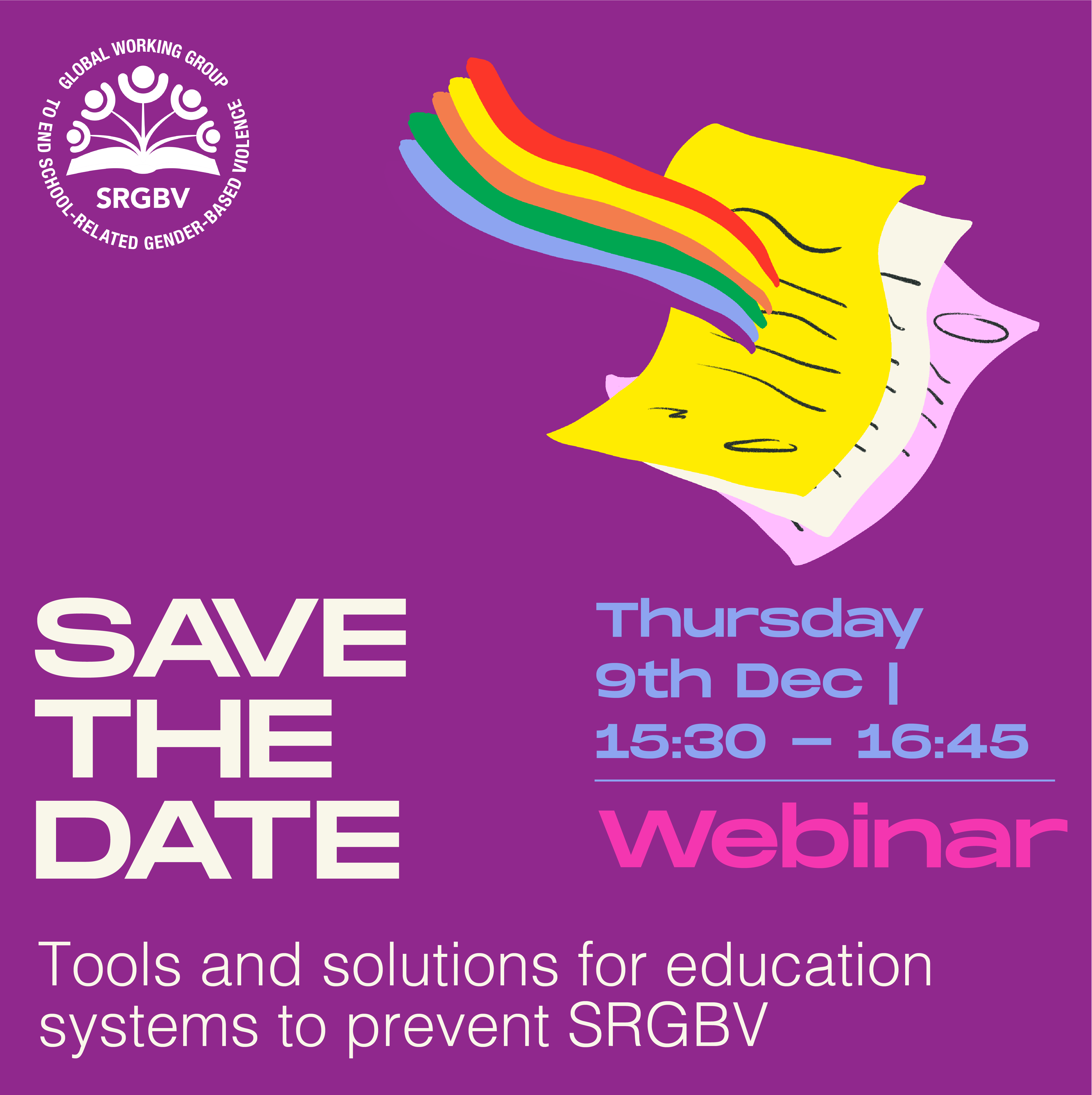As education systems around the world prepare to reopen following nationwide measures to prevent the spread of COVID-19, schools must be prepared to tackle gender-based violence in and around schools, and provide support for learners who have experienced violence in the context of school closures. Research shows that when schools deliver school-wide, evidence-based violence prevention programmes, students are less likely to hold violence-supportive attitudes and report lower rates of both perpetrating or being victims of violence [1]. Furthermore, when schools provide time for social and emotional learning, they assist in the important work of recovery from the impact of emergencies and other forms of trauma and social dislocation, such as that caused by the COVID-19 pandemic [2].
Teachers have a key role to play in the prevention of school-related gender-based violence (SRGBV). With the appropriate training and support, they can be empowered to create safe, equitable and inclusive learning spaces and lead positive change within their schools and communities. However, teachers are also members of the communities they serve. Hence, they can find it challenging when asked to lead efforts to change harmful or inequitable social norms or to deal with distressing subject matter relating to violence. They can feel anxious that they will be criticized by community members who are resistant to these change efforts.

To better understand the kinds of support that teachers need to engage in such change efforts, we used surveys to ask teachers from seven countries in East and Southern Africa and one state in Australia what they found most challenging when providing SRGBV prevention programmes¹ . The findings offer a number of important insights into the realities of teaching about violence and about challenging social norms. This research also makes useful suggestions about how to empower teachers to do this important work in the classroom.
What challenges do teachers face in delivering curricula on prevention of SRGBV?
The teachers we interviewed pointed to three key structural barriers that reduced their capacity to provide classroom programmes that educate for the prevention of gender-based violence. They include lack of time to deal with this subject matter in the crowded curriculum; lack of professional learning to show them how; and lack of leadership support at school and system level [3]. These findings are consistent with other studies which show that schools often fail to provide well-being education programmes because teachers receive limited support, and because their national curriculum does not place sufficient emphasis on teaching these important life skills [4]. Data from further interviews and focus group discussions showed that when teachers do set out to provide SRGBV education, this involves emotional, pedagogical and political labour on their part [5].
There is significant emotional labour associated with teaching SRGBV prevention programmes, as gender-based violence is a sensitive topic. Teachers can be anxious about the possibility of triggering distress amongst affected students and about how to deal with an increase in disclosures, or help-seeking. They need training in how to lead class activities and manage follow-up conversations if students disclose. Without such support in place, teachers may decide it is better to do nothing, than to intervene.
Intersecting with this emotional labour, teachers bear substantial political labour when teaching this topic, because in doing so they are playing a part in changing social norms and patriarchal structures. Teachers are particularly vulnerable to resistance and backlash from colleagues, parents or community members, leading to teachers feeling unsafe in their workplace and reluctant to innovate.

Violence-prevention programmes designed to teach about gender norms, violence and child rights often involve the use of participatory teaching methods. This carries significant pedagogical labour, as many teachers are not familiar with these kinds of collaborative learning strategies which require them to move away from traditional hierarchical power structures between teacher and student [6]. It can be challenging to take on new teaching methods without sufficient training or ongoing support.
How can teachers be supported to deliver curricula on SRGBV prevention?
Teachers in our study told us that there were a number of different types of support that could equip them for these forms of labour, including curriculum materials that model how to teach well on this topic; curriculum and school frameworks which provide a home for the program; professional learning; ongoing training and collegial support within their school; and supportive school leaders [7].
The teachers we interviewed told us that they felt better able to teach about sensitive issues when they had the support of their principal, and when given meeting time to prepare lessons with fellow staff. This reduced the emotional labour of educating on SRGBV. They reported that an effective leader helped them to work as a team and to deliver their programme as part of a whole of school approach. When the whole staff worked as one, they found greater courage and strength to address these issues.
School leaders can play a key role in showing staff, students and parents that prevention of gender-based violence is a strong fit with the values and goals of the school. This can lessen the burden of political labour felt by teachers. Those that we interviewed said they felt a greater permission to act when they had this kind of support from their principal, and when their principal told the community that their education system policy directed them to do their best to prevent all forms of gender-based violence and promote a gender-equitable learning environment².

According to our study, teachers also appreciate training and expert guidance when asked to open sensitive material for discussion or when asked to use unfamiliar teaching methods. This lessens the amount of pedagogical labour that rests on their shoulders. The teachers we interviewed particularly valued the detailed lesson plans provided to guide their approach³. They also valued the chance to engage in professional learning which modeled how to lead the learning activities, provided opportunity for reflection and collegial exchange and offered a chance to develop peer support. This was found to be particularly important in sustaining their courage and determination in the face of emotional and political labour.
The COVID-19 context presents new challenges for preventing and responding to gender-based violence. Our research shows that when teachers get the support they need, their vision and commitment can be converted into effective action. They can inspire and support their colleagues to step up and educate for promotion of gender equality and prevention of gender-based violence in and around schools. When this happens, their students report more positive cross-gender relationships with peers, better relationships with teachers, and greater confidence that they could approach their teachers as a source of help, should they be affected by gender-based violence.
¹This data was collected at training sessions that we provided for the UNESCO Connect with Respect: Preventing gender-based violence in schools initiative in Eastern and Southern Africa (2018), and the Victorian Department of Education Resilience, Rights and Respectful Relationships training in Australia (2017–18).
²This was highlighted by a participant of the UNESCO Connect with Respect: Preventing gender-based violence in schools training in Eastern and Southern Africa (2018) who stated:We are starting to teach young people how to do this — we know the harm in saying nothing — UNESCO CWR training participant, Eastern and Southern Africa.
³These open access programmes were Connect with Respect, published by UNESCO and the Resilience Rights and Respectful Relationships programme published by the Department of Education and Training, Victoria, Australia.
References:
1. Crooks, C., et al., Preventing gender-based violence among adolescents and young adults: lessons from 25 years of program development and evaluation. Violence against Women, 2019. 25: p. 29–55.
2. Cahill, H., et al., Natural disasters and pandemics: supporting student and teacher wellbeing after a crisis. 2020, Graduate School of Education, University of Melbourne: Melbourne.
3. Cahill, H. and K. Romei, Preventing gender-based violence in schools in the east and southern Africa region: from consultation to capacity-building, Y.R. Centre, Editor. 2019, University of Melbourne: Melbourne.
4. Ransford, C.R., et al., The Role of Teachers’ Psychological Experiences and Perceptions of Curriculum Supports on the Implementation of a Social and Emotional Learning Curriculum. School Psychology Review, 2009. 38(4): p. 510–32.
5. Cahill, H. and B. Dadvand, Triadic Labour in Teaching for the Prevention of Gender-based Violence. Gender and Education, 2020: p. 1–15.
6. Cahill, H., et al., Influences on teachers’ use of participatory learning strategies within health education classes. Health Education Journal, 2013: p. 0017896913513892.
7. Dadvand, B. and H. Cahill, Structures for Care and Silenced Topics: Accomplishing Gender-Based Violence Prevention Education in a Primary School. Pedagogy, Culture and Society, 2020.



 English
English العربية
العربية Български
Български Hrvatski
Hrvatski Čeština
Čeština Dansk
Dansk Nederlands
Nederlands Suomi
Suomi Français
Français Deutsch
Deutsch Ελληνικά
Ελληνικά हिन्दी
हिन्दी Italiano
Italiano Română
Română Русский
Русский Español
Español Maltese
Maltese Zulu
Zulu አማርኛ
አማርኛ